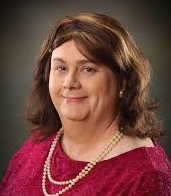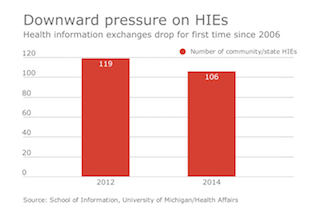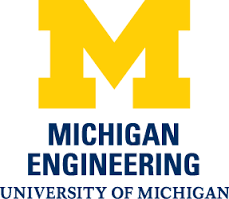 “Everyone is doing sequencing, but most people aren’t able to analyze their sequences as well or as quickly as they might want to,” Bedford said. “We’re trying to fill in this gap so that the World Health Organization or the U.S. Centers for Disease Control and Prevention — or whoever — can have better analysis tools to do what they do. We’re hoping that will get our software in the hands of a lot of people”...
“Everyone is doing sequencing, but most people aren’t able to analyze their sequences as well or as quickly as they might want to,” Bedford said. “We’re trying to fill in this gap so that the World Health Organization or the U.S. Centers for Disease Control and Prevention — or whoever — can have better analysis tools to do what they do. We’re hoping that will get our software in the hands of a lot of people”...
 An “open-source” approach to accelerating human health advances is the common theme among a diverse group of medical science projects that have won six science awards honoring “excellence in participant-centered research” - a rapidly emerging field that aims to turn patients and healthy people into more active and more data-sharing participants in medical research. The awards will be given out at Harvard Medical School in Boston on April 25 at a scientific convening called GET Conference (“GET” stands for “Genomes, Environments, Traits”). “The winners of the GETy Awards are at the forefront of a research revolution that will radically accelerate the rate of human health advances,” says Jason Bobe, organizer of the GET Conference, and Executive Director of the nonprofit PersonalGenomes.org.
An “open-source” approach to accelerating human health advances is the common theme among a diverse group of medical science projects that have won six science awards honoring “excellence in participant-centered research” - a rapidly emerging field that aims to turn patients and healthy people into more active and more data-sharing participants in medical research. The awards will be given out at Harvard Medical School in Boston on April 25 at a scientific convening called GET Conference (“GET” stands for “Genomes, Environments, Traits”). “The winners of the GETy Awards are at the forefront of a research revolution that will radically accelerate the rate of human health advances,” says Jason Bobe, organizer of the GET Conference, and Executive Director of the nonprofit PersonalGenomes.org.
 uBiome, the leader in microbial genomics, welcomes Dr. Michael McNamara to its scientific advisory board. Dr. McNamara is the Medical Director at Dr. McNamara Premium Healthcare in Monaco, which specializes in preventive diagnostics using Magnetic Resonance Imaging and CT scanning along with blood analysis to produce a complete medical check-up. Dr. McNamara grew up in the U.S., undertaking his university and medical studies at the University of Michigan, followed by an internship in medicine and surgery in San Diego, California. He subsequently specialized in Radiology and Advanced Heart Scanning at UCSF...
uBiome, the leader in microbial genomics, welcomes Dr. Michael McNamara to its scientific advisory board. Dr. McNamara is the Medical Director at Dr. McNamara Premium Healthcare in Monaco, which specializes in preventive diagnostics using Magnetic Resonance Imaging and CT scanning along with blood analysis to produce a complete medical check-up. Dr. McNamara grew up in the U.S., undertaking his university and medical studies at the University of Michigan, followed by an internship in medicine and surgery in San Diego, California. He subsequently specialized in Radiology and Advanced Heart Scanning at UCSF... Dr. Kyla McMullen spoke at OSCON's morning keynote session today. She was the first African-American woman to graduate with a PhD in Computer Science and Engineering at the University of Michigan. And it says a lot about tech's lack of inclusiveness that this landmark achievement happened in 2012. These days she is Assistant Professor in Computer Science at the University of Florida. In her keynote, Dr. McMullen explained that as a child she was a tinkerer and reader—like most of us in the room...
Dr. Kyla McMullen spoke at OSCON's morning keynote session today. She was the first African-American woman to graduate with a PhD in Computer Science and Engineering at the University of Michigan. And it says a lot about tech's lack of inclusiveness that this landmark achievement happened in 2012. These days she is Assistant Professor in Computer Science at the University of Florida. In her keynote, Dr. McMullen explained that as a child she was a tinkerer and reader—like most of us in the room... The tranSMART Foundation, a non-profit organization providing a global, open-source, open-data knowledge management platform for scientists to share pre-competitive translational research data, and IBM (NYSE: IBM), today announced their collaboration and the general availability of the tranSMART platform (version 16.2) on IBM Power8 servers. The translational research platform is running on IBM Power8 servers at the tranSMART Foundation's Center of Excellence at the University of Michigan. This new implementation allows users to take advantage of the optimized performance enabling them to more quickly and easily load and analyze data...
The tranSMART Foundation, a non-profit organization providing a global, open-source, open-data knowledge management platform for scientists to share pre-competitive translational research data, and IBM (NYSE: IBM), today announced their collaboration and the general availability of the tranSMART platform (version 16.2) on IBM Power8 servers. The translational research platform is running on IBM Power8 servers at the tranSMART Foundation's Center of Excellence at the University of Michigan. This new implementation allows users to take advantage of the optimized performance enabling them to more quickly and easily load and analyze data... Despite federal funding that aided their creation, the number of community and state health information exchanges is declining as HIEs struggle to remain financially viable now that seed money has dried up. Those are among the results of a new national survey published in the July issue of Health Affairs that tracked community and state HIE efforts soon after federal funding ended. “We found 106 operational HIE efforts that, as a group, engaged more than one-third of all U.S. providers in 2014,” states the study’s authors...
Despite federal funding that aided their creation, the number of community and state health information exchanges is declining as HIEs struggle to remain financially viable now that seed money has dried up. Those are among the results of a new national survey published in the July issue of Health Affairs that tracked community and state HIE efforts soon after federal funding ended. “We found 106 operational HIE efforts that, as a group, engaged more than one-third of all U.S. providers in 2014,” states the study’s authors... A new open-source, artificially intelligent prosthetic leg designed by researchers at the University of Michigan and Shirley Ryan AbilityLab is now available to the scientific community. The leg's free-to-copy design and programming are intended to improve the quality of life of patients and accelerate scientific advances by offering a unified platform to fragmented research efforts across the field of bionics. "Our Open-Source Bionic Leg will enable investigators to efficiently solve challenges associated with controlling bionic legs across a range of activities in the lab and out in the community," said lead designer Elliott Rouse, core faculty at U-M's Robotics Institute and assistant professor of mechanical engineering.
A new open-source, artificially intelligent prosthetic leg designed by researchers at the University of Michigan and Shirley Ryan AbilityLab is now available to the scientific community. The leg's free-to-copy design and programming are intended to improve the quality of life of patients and accelerate scientific advances by offering a unified platform to fragmented research efforts across the field of bionics. "Our Open-Source Bionic Leg will enable investigators to efficiently solve challenges associated with controlling bionic legs across a range of activities in the lab and out in the community," said lead designer Elliott Rouse, core faculty at U-M's Robotics Institute and assistant professor of mechanical engineering. Now it’s possible for anyone to see and share 3-D nanoscale imagery with Tomviz 1.0, a new open-source software platform released today. Designed by a team that includes scientists at the University of Michigan, Cornell University and open-source software company Kitware Inc., Tomviz is the first open-source tool that enables researchers to easily create 3-D images from electron tomography data, then share and manipulate those images in a single platform...
Now it’s possible for anyone to see and share 3-D nanoscale imagery with Tomviz 1.0, a new open-source software platform released today. Designed by a team that includes scientists at the University of Michigan, Cornell University and open-source software company Kitware Inc., Tomviz is the first open-source tool that enables researchers to easily create 3-D images from electron tomography data, then share and manipulate those images in a single platform...